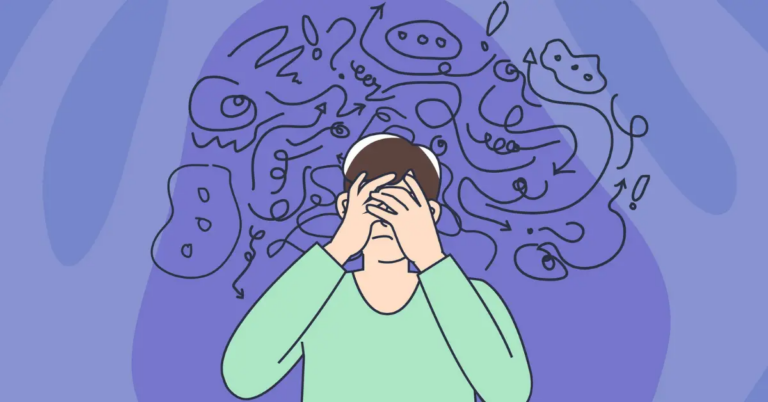With psychiatric disorders affecting millions of people around the globe, researchers continue to explore the link between diet and mental health. As evidence continues to grow, what we eat could have more impact on our mood than we think.
It makes sense that what we put into our mouths affects all parts of our bodies. As nutrients are broken down in the stomach and gut, our bloodstream delivers critical vitamins and minerals to our brains. If our food is poor in nutrients or contains ingredients that may harm the brain, impaired function is a natural result.
How, though, do specific foods, and our diet affect mental health? Are there foods that boost mental health or reduce anxiety and depression? We’ll look at what the current research suggests, what we still don’t know, and how to eat to support mental health.
Changing Global Diet And Mental Health
The way we live and eat has changed rapidly in the last 100 years. Because populations have moved away from traditional foods and lifestyles, many suffer physically and mentally. Laborious physical activity, plenty of time outdoors, and a sense of community have been replaced by a lightning-fast economy, industrialization, and hours spent behind a screen–often alone. It includes eating highly processed food that’s cheap but lacks nutrition. (1)
It’s no wonder, then, that mental health issues are becoming more common. The brain depends on certain nutrients, including fats, amino acids, vitamins, and minerals, to function optimally. If foods with the proper nutrients aren’t eaten, it becomes even more difficult for the brain to work correctly.
Fruits, Veggies, And Mood
Researchers are still figuring out exactly how and why diet affects mental health. There are, however, a few basic ways to add foods that reduce anxiety and depression to your diet. Most of us know that healthy eating starts with fruits and vegetables–and this may extend to our brain, too.

Studies show that a diet including more fruits and vegetables corresponds to higher mental well-being levels. The Mediterranean diet, for example, includes foods rich in fruit, vegetables, whole grains, fish, and healthy fats like olive oil. Those who adhere to the Mediterranean diet were shown to reduce depression and anxiety symptoms. (2)
Other studies show the importance of fruits and vegetables through diets that don’t include them. The typical Western diet, usually consisting of many processed foods, has increased the risk of developing mental health issues like anxiety or depression. It’s clear, then, that fresh foods in the diet are essential. (3)
Mental Health And The Microbiome
Evidence is mounting for the role of the gut microbiome in mental health. The brain and gut are linked through various mechanisms, with good bacteria supporting the development of mood-regulating hormones like serotonin. The less nutritional the food we eat, the more unbalanced our guts can become. Bad bacteria can outnumber the good, causing many imbalances.
To balance the gut microbiome, lower inflammation, and help our brains function at their best. High-fiber and Mediterranean diets have been shown to promote a diverse microbiome. By feeding the body what it needs, the link between diet and mental health can be positive rather than negative. (1)
To find specific foods and dishes that help support overall health, download a free copy of Dr. Partha Nandi’s Super Foods cookbook here. It includes 60 recipes that harness the power of 18 superfoods that support mood by taking care of the body.

My Personal RX:
In addition to the various dietary changes and mental health awareness as discussed above, I also have some personal recommendations that can help optimize your life and promote better mental health. Below are my suggestions to maintain a healthy, balanced lifestyle:
- Maintain a Balanced Diet: Eating a variety of nutrient-dense foods not only provides your body with the fuel it needs but also supports your mental well-being. Aim for a mix of proteins, whole grains, fruits, and vegetables in your daily meals.
- Regular Exercise: Make sure to engage in regular physical activity. Whether it’s a brisk walk, a rigorous gym session, or yoga, exercise can help reduce stress, improve mood, and boost your overall health.
- Connect with Nature: Spend some time outdoors every day if you can. A walk in the park, gardening, or just sitting in a natural setting can help balance stress levels and provide a sense of calm and tranquility.
- Download My Protocol: I encourage you to download a free copy of my Protocol. This comprehensive guide offers a step-by-step process for optimizing your life. It provides detailed insights and tips for improving various aspects of your lifestyle and well-being.
- Take My Mood Supplement: To further support your mood, consider incorporating my Mood Supplement into your daily routine. This supplement is designed to help improve mood, balance stress levels, and support overall mental health.
Remember, mental health is not a one-size-fits-all approach. It’s about discovering what works best for you and making those choices a consistent part of your life. Stick with these recommendations, and you’re likely to see improvements in your overall mood and well-being.

Sources:
- https://www.thelancet.com/journals/lanpsy/article/PIIS2215-0366(14)00051-0/fulltext
- https://www.sciencedirect.com/science/article/pii/S0924977X19317237
- https://www.cambridge.org/core/journals/proceedings-of-the-nutrition-society/article/role-of-diet-and-nutrition-on-mental-healthandwellbeing/372284768DB78DB02EB199E277AABF79


















